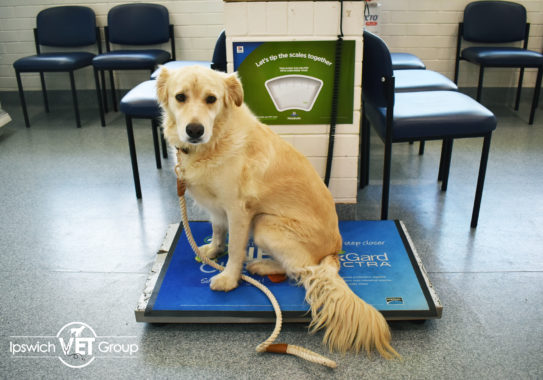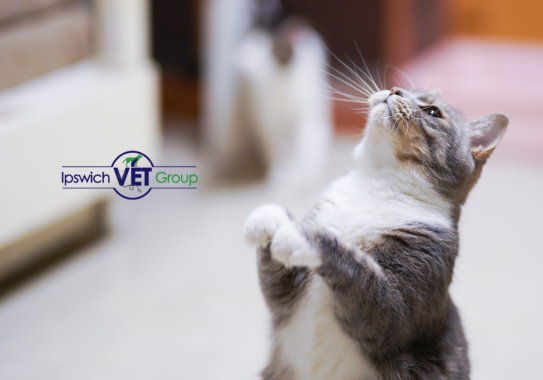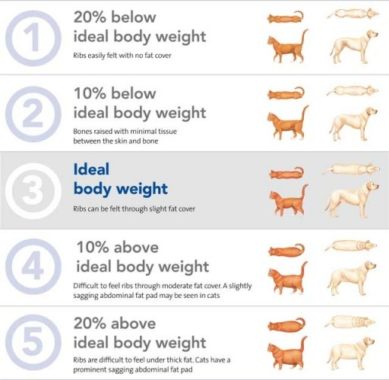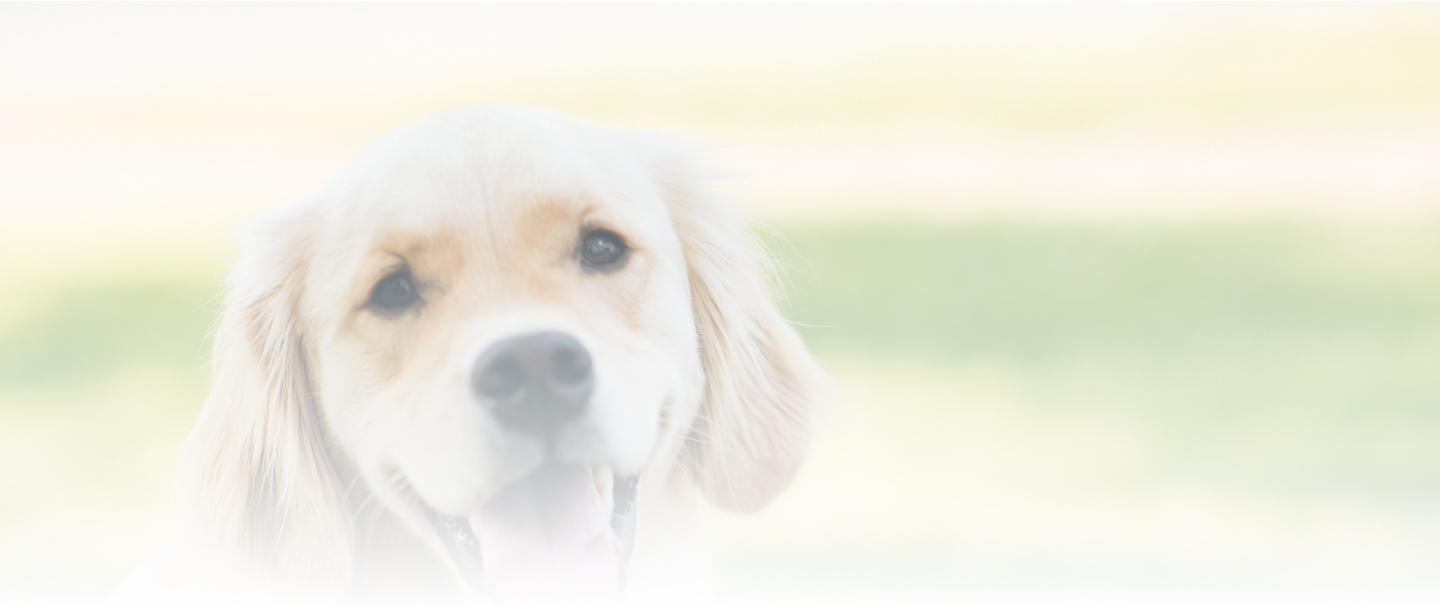Just like us, being overweight can have a serious impact to the health of our pets. It’s estimated that over 40% of dogs and 30% of cats are overweight. However, many pet owners aren’t aware that their pet is overweight, as the majority of us don’t quite know how to tell.
Obesity in pets is incredibly dangerous, not only raising the risk of diabetes, osteoarthritis, cardiovascular and respiratory diseases, pancreatitis and urinary issues, but any pre-existing health issues are worsened by excess weight.


Not only this, overweight pets are at a risk of living shorter lives. As little as 20% extra weight can cut years off your pets lifespan.
Alongside these issues, your pets quality of life is decreased. Overweight and unfit pets move less which often means less fun and less play time with their family.
A simple change in food and habits can add years to your pets lifespan. You’re not just feeding them, you’re feeding the relationship you both share!
It’s hard to know what to look for, however some simple signs that your pet is overweight are:
- Ribs cannot be easily felt
- Loss of an obvious waist
- Collar needs loosening
- Difficulty walking
- Slow movement
- Shortness of breath
- Sleeping more than usual
Assessing whether your pet is overweight is really simple. We don’t worry about the number on the scale per height as we do for humans. Instead we work off the Body Condition Scoring system.

Need some handy hints to help kick-start your pets weight loss?
- Feeding a complete and balanced diet to suit your pet’s life stage goes a long way to help them lose and maintain an ideal weight. High quality diets are formulated to ensure your pet receives all the nutrition they require, without the need of any supplements.
- Feeding the right amount of food is important in controlling weight gain. High quality diets have a feeding guide which is dependent on your pets’ size, activity level and life stage. Still unsure? Contact us for help today!
- Just because you’re trying to control weight gain doesn’t mean your pet needs to miss out on treats! It’s important to continue to reward your pet, just be mindful of what you’re feeding them. Low calorie treats or vegetables such as carrots are tastier to our pets than we think!
- Regularly exercising our pets is important in a healthy lifestyle. It’s important to note that if your pet is already overweight, starting exercise slowly is crucial in keeping them safe from injuries. Encouraging play sessions as well as walking, swimming or similar activities are great ways to keep your pet slim and your bond strong!




